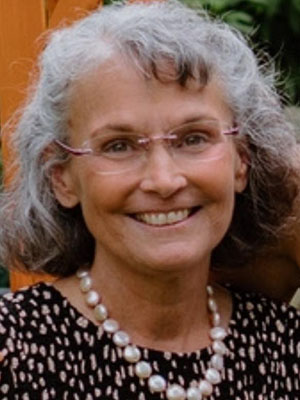
Suzanne Adriana Remington
IN HER POEM NEW DAY’S LYRIC, 2017 National Youth Poet Laureate Amanda Gorman wrote that we are “Tethered by this year of yearning, / We are learning / That though we weren’t ready for this, / We have been readied by it.”
I read this poem during the holidays, as I was looking ahead to the new year while reflecting on 2022. It clearly resonated. I had started the year working with young children, feeling productive and necessary. By year’s end I was retired, trying to find new purpose in my life. As I say goodbye to some people, and as I meet new people, I am often told how strong I am, how positive I am, what an inspiration I am. I have no idea who these people are looking at, because it is not who I see in the mirror. I have been fighting cancer for three years, and apparently, I do a good job of hiding the battle wounds.
I was diagnosed with stage IV non-small cell lung cancer (NSCLC) in late 2019. It is incurable and inoperable. I didn’t smoke. I was a runner. On a particular five-mile run, I felt sluggish. I wondered if I was coming down with a chest cold and wanted to tackle it, should it develop into something bigger. Of course, it turned out to be so much more than a cold. I was 58 years old at the time, passing my Connecticut days not only with running, but working in a nearby school district as a behavior analyst. My weekends were filled with family time, seeing the latest theater production, checking out our local art museums, or spending time outside. I was not one for sitting still—until cancer took up residence in my body. My particular diagnosis erupted from a rare gene mutation (ALK), and my current treatment involves gene-targeted therapy. It is doing its job, as the cancer has stabilized, at least for now. However, that comes with a price—mainly extreme fatigue and daily nausea.
As just about anyone fighting cancer will tell you, we are not ready for it, but as the poem says, we have been “readied by it.” Although Gorman was not referring to cancer, it spoke to my experience. Cancer is clearly in the driver’s seat, and we are just along for the ride. But we do get to choose what kind of passenger we will be. We can be the passenger who sings along with the radio, happily chatting, no matter our level of fatigue or nausea. We can look that ugly driver right in the eye, no matter what scary dialogue it spews, and learn all there is to learn without flinching. Our knowledge becomes our weapon as we locate treatment trials, new therapies, cancer experts. We dance the cancer dance: fight what we can and accept what we must.
We can do all this because we carry hope in our pockets. “This hope is our door, our portal.” It is as if Gorman wrote those words especially for us. We know that “even if we never get back to normal / Someday we can venture beyond it, / To leave the known and take the first steps.”
As we cling to our hope, we are cognizant of the fear that also tries to follow our every step, fears we don’t usually give voice to: “Will we see our children or grandchildren grow?” or “Are we a burden to our families?” That inner voice challenges our outer portrait of a positive, strong and accepting passenger. We have been readied for it, so we do what we must. Few will see the yearning that has tethered a cancer fighter’s year. As much as we yearn for “The Before,” we mostly look ahead because we know, as Gorman somehow knows, that we cannot “return to what was normal, / But reach toward what is next.” Reaching toward what is next is what we cancer fighters do best, traveling our new journey with a hope and faith that most days is bigger than our fear. This allows us to trick our driver into thinking we are worthy opponents. And on some days, we might even feel like one. On really good days, we might even be one. We are ready.
Share your story with Cancer Today. We’re looking for people who have or had cancer to share their perspectives and provide helpful tips to other readers. Send your 700-word essay to personalstories@aacr.org for a chance to have your story featured on the Cancer Today website.
Cancer Today magazine is free to cancer patients, survivors and caregivers who live in the U.S. Subscribe here to receive four issues per year.





